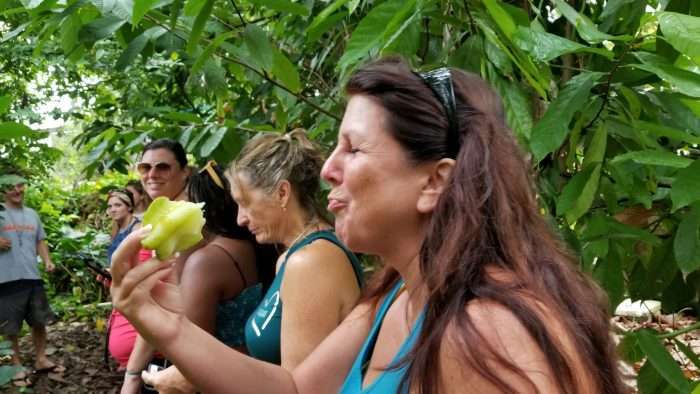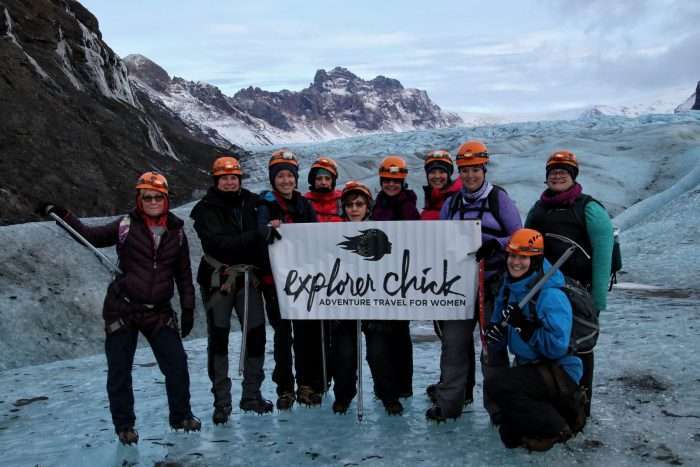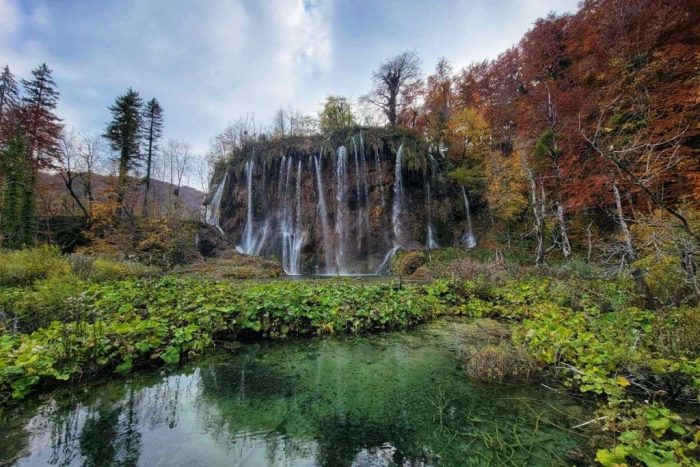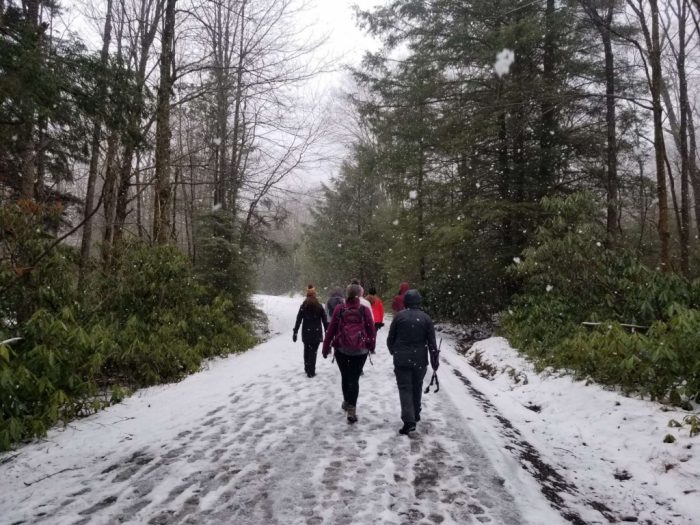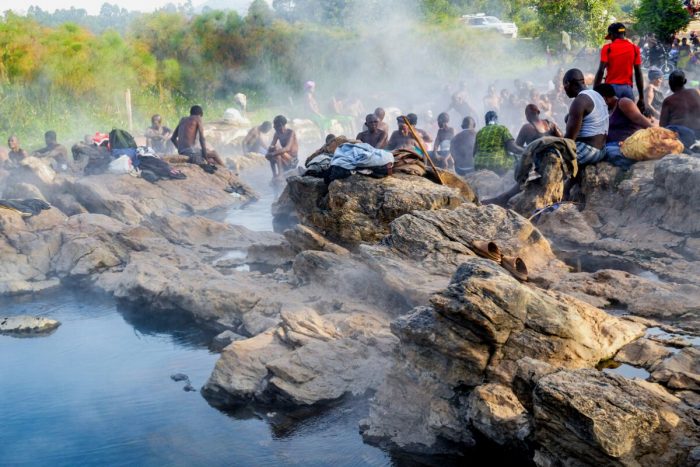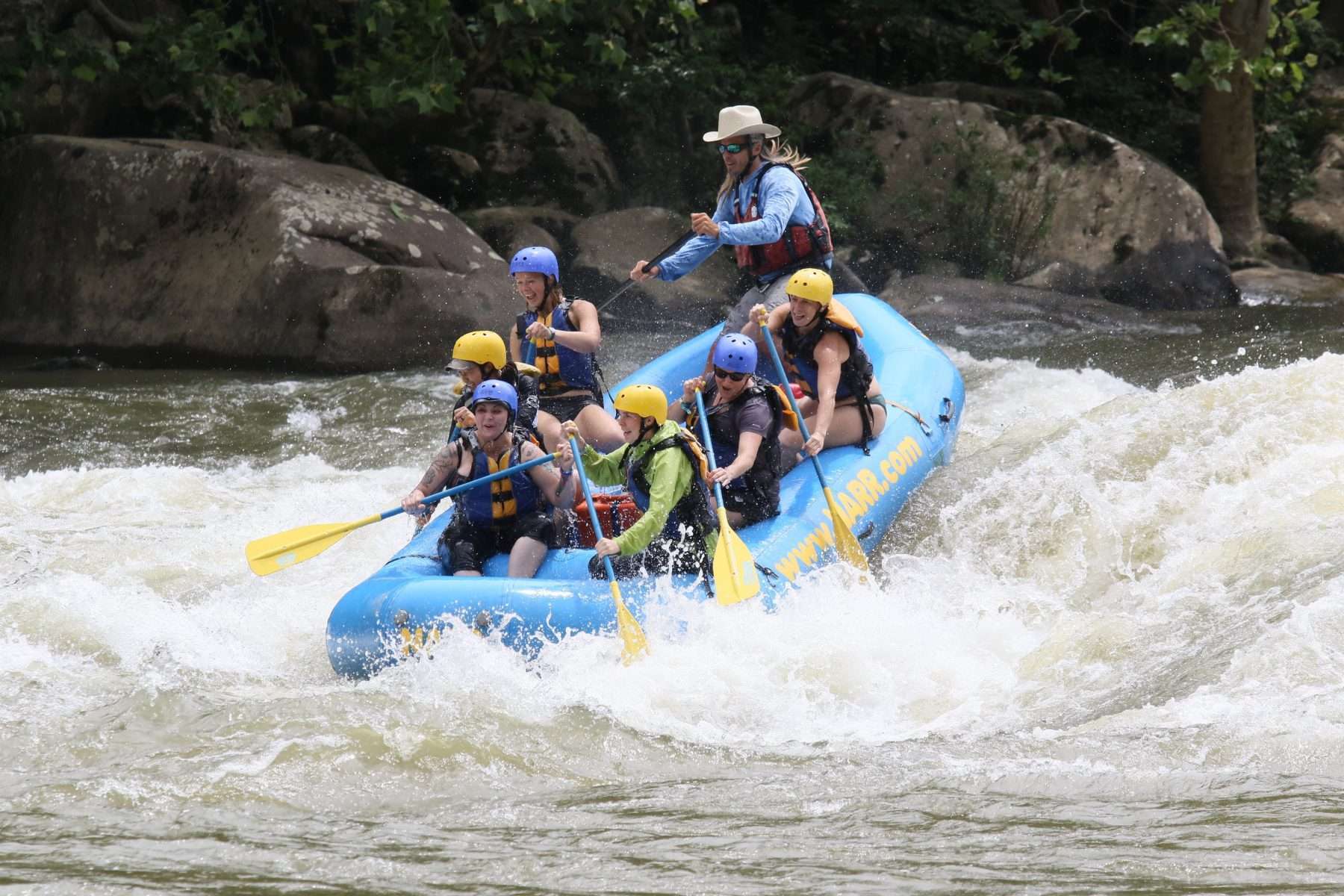How to Be More Eco-Friendly While Traveling
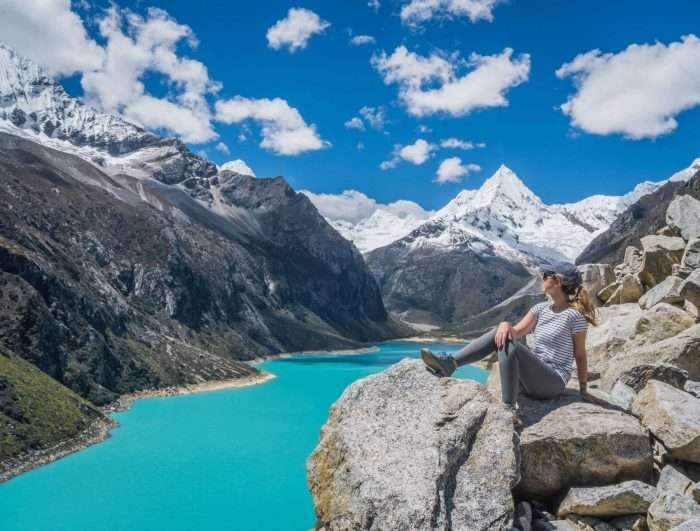
13 TIPS FOR EASY, SIMPLE, AND PRACTICAL WAYS TO BE A MORE ECO-FRIENDLY AND SUSTAINABLE TRAVELER.
It’s a fact: Explorer Chicks love to travel. It opens our minds and immerses us in intercultural understanding. It promotes environmental stewardship by connecting us to the outdoors and the world on a deeper level. However, it’s also a fact that travel takes a toll on our environment between gas-guzzling flights, energy-consuming hotels, to-go containers, plastic water bottles, and impact on our iconic landmarks and icons.
The trick is finding ways to reduce our impact and doing more good. While there are people who go to the extremes (and we applaud them), we realize that’s not practical for most people. For a movement to be effective, it needs to be easily executed. There are many smaller steps that you can take that have a large impact. All of our tips can be implemented with little to no extra effort.
1. Unplug your home before you unplug for your vacation
Before you leave for your trip, whether it’s a weekend trip or a week-long trip, unplug everything in your home. The coffee maker, TV, phone chargers, lamps. Even if you’re not using something, just having it plugged in seeps energy from the grid. This not only saves electricity but also saves you money.
2. Pack lighter
This may seem insignificant, but packing lighter has a huge environmental impact. If your bag is lighter then the plane will weigh less, the bus you ride or the car you drive will be just as light, and each one of those changes means the fuel consumption will also be less. And, let’s face it. Do you actually wear everything you pack? Channel your inner packing ninja and stick strictly to the packing lists.
You can even choose backpacks that are more eco-friendly and reduce your carbon footprint by buying from ethical backpack companies.
3. BYO water bottle
Ugh. Single Use Plastics. Enough already. There’s no need to expand on this concept. Refill your water bottle instead of buying new while on the road. Yes, this sometimes means you’ll be doing a 1 liter water challenge while waiting in line at TSA then dashing to the toilets en route to your gate. (Not at all referencing several personal experiences).
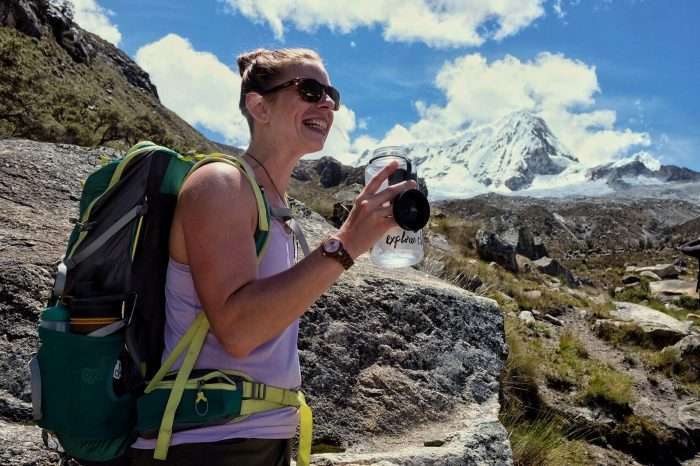
Explorer Chick Founder Nicki with her favorite Nalgene water bottle and Grayl water purifier in side pocket trekking in the Cordillera Blancas of Peru.
4. Bring along a water purifier
Sometimes the places we travel do not have safe, potable tap water. Now what? Instead of forking over a steady stream of cash to constantly buy water, invest in a water purifier. We love the Grayl for travel. It’s a bit bulky for backcountry adventures, but it’s perfect to refill water bottles in hotels or to dip into a stream on a day hike.
5. Use reef-safe sunscreen
You’ve probably heard of reef-safe sunscreen by now, but what should you be looking for? Look for lotions that do not contain oxybenzone and octinoxate which contribute to coral bleaching. You’ll want to use the reef safe in any open waters, not just reef areas. Titanium dioxide found in common lotions does not biodegrade and is found to react in warm seawater to form hydrogen peroxide which is harmful to all sea life.
6. Get thrifty and buy used
We are huge thrift store fans (and possibly addicts). Thrift stores are more than a Halloween costume shop, but a year-round treasure trove of name brand goodies for mere dollars. I have found Patagonia, North Face, Eddie Bauer, Columbia, Prana, Athleta, and Lululemon at my local stores. It’s not only good for your wallet, but you are basically recycling clothes—extending their life outside of the landfill. Be sure to check online with your local thrift stores to find out when they have their sales. Some Goodwills have 50% off every Saturday. Ebay, Poshmark, Craigslist, Facebook Marketplace, and consignment stores are also good resources to find used gear and apparel.
7. Carpool
This is self explanatory. Even if traveling solo to meet a group, proactively reach out to see if other travelers from your area want to share gas. We encourage you to reach out to each other on your adventure’s Facebook Event.
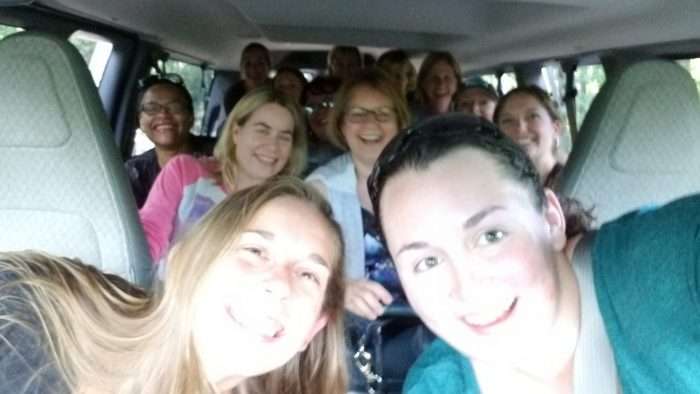
The more the merrier on road trips!
8. Eat like a local
As travelers and not tourists, we arrive in new destinations as cultural participants, not cultural disrupters. Travel is a full sensory experience! Eating and purchasing local food and products means that no one transported those goods across the state, country, world. Plus, it helps local businesses.
9. Hire locally and reduce poverty
The first goal of the UN’s Sustainable Development Goals is “no poverty.” The travel industry plays an integral role especially in emerging markets, post-conflict areas, and post-natural disaster areas by enabling entrepreneurs. Your tourism dollars provide income and livelihood reducing poverty. How does this affect the Earth? Poverty is well known to contribute to decisions and behaviors that can exacerbate climate change, such as choosing to harvest trees or other natural resources for short-term gain even though this may cause irreversible damage over the long term. As a company, we always seek out local partners in our destinations who employ locals and also pay them fair wages.
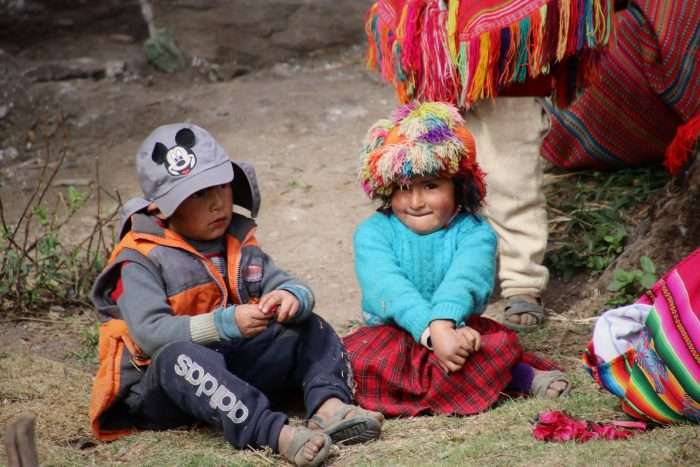
Explorer Chicks visit a Quechua village on our Inca Trail Trek to Machu Picchu Adventure, where we dress in traditional garb, eat like a local, enjoy a performance by the children, learn about weaving, and support the women of the village by purchasing scarves, tapestries, hats and more directly from the weaver.
10. Choose lodging wisely
There are several means to be eco-friendly when you choose your place to lay your head after a day of adventure. The most obvious solution is to select an Eco Hotel. Our hotel on our Dominican Republic Tropical Adventure is an eco hotel that is ran 99% on solar power. They also take steps to reduce their footprint such as only cleaning every other day, hiring locals and paying them a fair wage, and sourcing their food directly from a partner organic, aquaponic farm. You can also select lodging that is in walking distance to hot spots, restaurants, shopping, and markets. Staying at one location for the duration of your vacation also saves energy by requiring less cleaning.
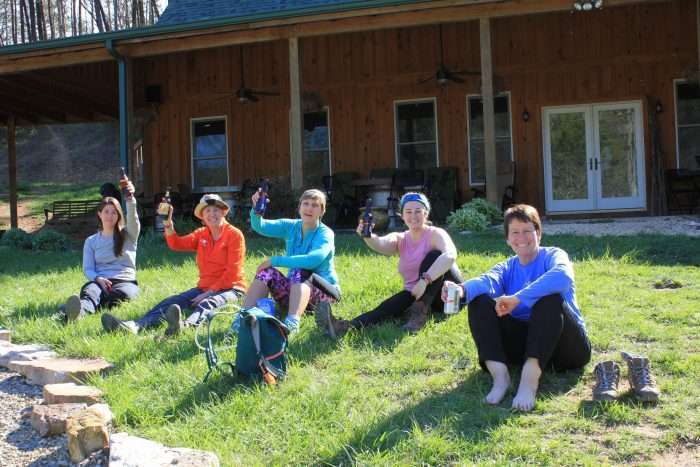
Kicking back with some brews at our base camp in Virginia.
11. Practice Leave No Trace
We wouldn’t be an outdoor adventure travel company if we didn’t address Leave No Trace. Of course, it’s more than just leave only foot prints, take only pictures. It’s being considerate of the person who hikes the trail 15 minutes after you by packing out that banana peel and bagging your dog’s poo. It’s listening to your music with headphones and not blaring it disrupting both other hikers and the wildlife. It’s not walking around the soggy sections widening the trail, but wearing appropriate footwear to walk through the mud. It’s respecting the trail and limiting your group size per stated regulations or common sense. It’s not feeding the wildlife no matter how cute that Pika might be. Lastly, it’s not cutting switchbacks and staying on the trail.
12. Travel to parts unknown
We live in a world where our travel inspiration is fueled by social media. This has its pros, like bringing the wonders of our world to our fingertips. Yet, the destinations that go viral are suffering. Governing bodies are falling behind in managing the sudden influx of crowds and these destinations are quickly becoming highly regulated. Most recently, we’ve seen drastic changes at Machu Picchu and Havasu Falls due to overcrowding. Instead of traveling to the latest viral video destination, go rogue. Be an Explorer Chick following her intrepid sense seeking out destinations lesser-known. Chances are the views will be just as astonishing but you’ll avoid the crowds. We actively work to curate adventures that are to lesser-known areas for this reason. We love unique, authentic, remote experiences. Our Unspoiled Hiking in Scotland Tour and Ultimate Cordillera Huayhuash Trek trips are great examples.
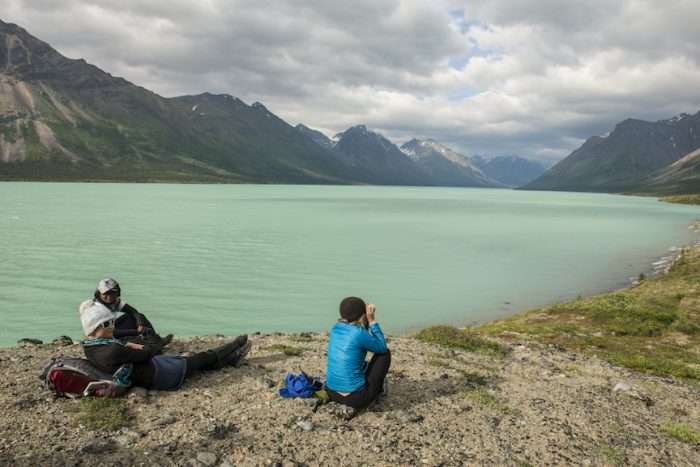
Explorer Chicks enjoying the remote, backcountry of the Alaska’s less-frequently visited Lake Clark National Park.
13. Book small group travel
Yes, shameless plug, but small group travel is more eco-friendly. The biggest reason is we share resources. It’s shared transportation, lodging, groceries. We curate trips and arrange logistics in the most efficient way possible. The smaller number of travelers also prevents sudden overcrowding of resources. I know we have all witnessed a motor coach unload at a scenic overlook or a cruise ship dock. You’ll also have at least one guide for the group who acts as an environmental steward educating her travelers on the local environment and outdoor ethics. Finally, as commercial operators we have to carry special permits when operating in National Parks, State Parks, National Forests, or any publicly owned land. The application process is often lengthy requiring us to provide our guide qualifications, operating plans, emergency plans, proof of insurance, and more. To give you an idea, I have written a detailed paragraph about how we planned to dispose of human waste. Yes. Extremely detailed. The parks are doing their due diligence ensuring we are operating sustainably without harm while protecting the traveler’s who book with us. This means you have highly qualified, expert guides leading groups of outdoor enthusiasts on our public lands while leading by example and educating about how to enjoy nature sustainably. Then it’s a ripple effect from there.

